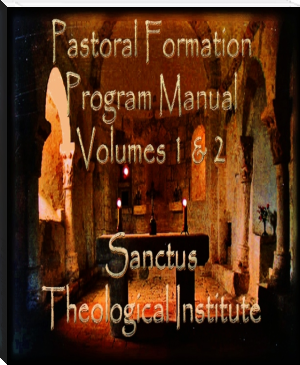The Antichrist - Friedrich Wilhelm Nietzsche (ebook reader ink .TXT) 📗

- Author: Friedrich Wilhelm Nietzsche
- Performer: 1884365205
Book online «The Antichrist - Friedrich Wilhelm Nietzsche (ebook reader ink .TXT) 📗». Author Friedrich Wilhelm Nietzsche
The present translation of “The Antichrist” is published by agreement with Dr. Oscar Levy, editor of the English edition of Nietzsche. There are two earlier translations, one by Thomas Common and the other by Anthony M. Ludovici. That of Mr. Common follows the text very closely, and thus occasionally shows some essentially German turns of phrase; that of Mr. Ludovici is more fluent but rather less exact. I do not offer my own version on the plea that either of these is useless; on the contrary, I cheerfully acknowledge that they have much merit, and that they helped me at almost every line. I began this new Englishing of the book, not in any hope of supplanting them, and surely not with any notion of meeting a great public need, but simply as a private amusement in troubled days. But as I got on with it I began to see ways of putting some flavour of Nietzsche’s peculiar style into the English, and so amusement turned into a more or less serious labour. The result, of course, is far from satisfactory, but it at least represents a very diligent attempt. Nietzsche, always under the influence of French models, wrote a German that differs materially from any other German that I know. It is more nervous, more varied, more rapid in tempo; it runs to more effective climaxes; it is never stodgy. His marks begin to show upon the writing of the younger Germans of today. They are getting away from the old thunderous manner, with its long sentences and its tedious grammatical complexities. In the course of time, I daresay, they will develop a German almost as clear as French and almost as colourful and resilient as English.
I owe thanks to Dr. Levy for his imprimatur, to Mr. Theodor Hemberger for criticism, and to Messrs. Common and Ludovici for showing me the way around many a difficulty.
H. L. Mencken.
PREFACEThis book belongs to the most rare of men. Perhaps not one of them is yet alive. It is possible that they may be among those who understand my “Zarathustra”: how could I confound myself with those who are now sprouting ears?—First the day after tomorrow must come for me. Some men are born posthumously.
The conditions under which any one understands me, and necessarily understands me—I know them only too well. Even to endure my seriousness, my passion, he must carry intellectual integrity to the verge of hardness. He must be accustomed to living on mountain tops—and to looking upon the wretched gabble of politics and nationalism as beneath him. He must have become indifferent; he must never ask of the truth whether it brings profit to him or a fatality to him.... He must have an inclination, born of strength, for questions that no one has the courage for; the courage for the forbidden; predestination for the labyrinth. The experience of seven solitudes. New ears for new music. New eyes for what is most distant. A new conscience for truths that have hitherto remained unheard. And the will to economize in the grand manner—to hold together his strength, his enthusiasm.... Reverence for self; love of self; absolute freedom of self....
Very well, then! of that sort only are my readers, my true readers, my readers foreordained: of what account are the rest?—The rest are merely humanity.—One must make one’s self superior to humanity, in power, in loftiness of soul,—in contempt.
Friedrich W. Nietzsche.
THE ANTICHRIST 1.—Let us look each other in the face. We are Hyperboreans—we know well enough how remote our place is. “Neither by land nor by water will you find the road to the Hyperboreans”: even Pindar,[1] in his day, knew that much about us. Beyond the North, beyond the ice, beyond death—our life, our happiness.... We have discovered that happiness; we know the way; we got our knowledge of it from thousands of years in the labyrinth. Who else has found it?—The man of today?—“I don’t know either the way out or the way in; I am whatever doesn’t know either the way out or the way in”—so sighs the man of today.... This is the sort of modernity that made us ill,—we sickened on lazy peace, cowardly compromise, the whole virtuous dirtiness of the modern Yea and Nay. This tolerance and largeur of the heart that “forgives” everything because it “understands” everything is a sirocco to us. Rather live amid the ice than among modern virtues and other such south-winds!... We were brave enough; we spared neither ourselves nor others; but we were a long time finding out where to direct our courage. We grew dismal; they called us fatalists. Our fate—it was the fulness, the tension, the storing up of powers. We thirsted for the lightnings and great deeds; we kept as far as possible from the happiness of the weakling, from “resignation”... There was thunder in our air; nature, as we embodied it, became overcast—for we had not yet found the way. The formula of our happiness: a Yea, a Nay, a straight line, a goal....
[1] Cf. the tenth Pythian ode. See also the fourth book of Herodotus. The Hyperboreans were a mythical people beyond the Rhipaean mountains, in the far North. They enjoyed unbroken happiness and perpetual youth.
2.What is good?—Whatever augments the feeling of power, the will to power, power itself, in man.
What is evil?—Whatever springs from weakness.
What is happiness?—The feeling that power increases—that resistance is overcome.
Not contentment, but more power; not peace at any price, but war; not virtue, but efficiency (virtue in the Renaissance sense, virtu, virtue free of moral acid).
The weak and the botched shall perish: first principle of our charity. And one should help them to it.
What is more harmful than any vice?—Practical sympathy for the botched and the weak—Christianity....
3.The problem that I set here is not what shall replace mankind in the order of living creatures (—man is an end—): but what type of man must be bred, must be willed, as being the most valuable, the most worthy of life, the most secure guarantee of the future.
This more valuable type has appeared often enough in the past: but always as a happy accident, as an exception, never as deliberately willed. Very often it has been precisely the most feared; hitherto it has been almost the terror of terrors;—and out of that terror the contrary type has been willed, cultivated and attained: the domestic animal, the herd animal, the sick brute-man—the Christian....
4.Mankind surely does not represent an evolution toward a better or stronger or higher level, as progress is now understood. This “progress” is merely a modern idea, which is to say, a false idea. The European of today, in his essential worth, falls far below the European of the Renaissance; the process of evolution does not necessarily mean elevation, enhancement, strengthening.
True enough, it succeeds in isolated and individual cases in various parts of the earth and under the most widely different cultures, and in these cases a higher type certainly manifests itself; something which, compared to mankind in the mass, appears as a sort of superman. Such happy strokes of high success have always been possible, and will remain possible, perhaps, for all time to come. Even whole races, tribes and nations may occasionally represent such lucky accidents.
5.We should not deck out and embellish Christianity: it has waged a war to the death against this higher type of man, it has put all the deepest instincts of this type under its ban, it has developed its concept of evil, of the Evil One himself, out of these instincts—the strong man as the typical reprobate, the “outcast among men.” Christianity has taken the part of all the weak, the low, the botched; it has made an ideal out of antagonism to all the self-preservative instincts of sound life; it has corrupted even the faculties of those natures that are intellectually most vigorous, by representing the highest intellectual values as sinful, as misleading, as full of temptation. The most lamentable example: the corruption of Pascal, who believed that his intellect had been destroyed by original sin, whereas it was actually destroyed by Christianity!—
6.It is a painful and tragic spectacle that rises before me: I have drawn back the curtain from the rottenness of man. This word, in my mouth, is at least free from one suspicion: that it involves a moral accusation against humanity. It is used—and I wish to emphasize the fact again—without any moral significance: and this is so far true that the rottenness I speak of is most apparent to me precisely in those quarters where there has been most aspiration, hitherto, toward “virtue” and “godliness.” As you probably surmise, I understand rottenness in the sense of décadence: my argument is that all the values on which mankind now fixes its highest aspirations are décadence-values.
I call an animal, a species, an individual corrupt, when it loses its instincts, when it chooses, when it prefers, what is injurious to it. A history of the “higher feelings,” the “ideals of humanity”—and it is possible that I’ll have to write it—would almost explain why man is so degenerate. Life itself appears to me as an instinct for growth, for survival, for the accumulation of forces, for power: whenever the will to power fails there is disaster. My contention is that all the highest values of humanity have been emptied of this will—that the values of décadence, of nihilism, now prevail under the holiest names.
7.Christianity is called the religion of pity.—Pity stands in opposition to all the tonic passions that augment the energy of the feeling of aliveness: it is a depressant. A man loses power when he pities. Through pity that drain upon strength which suffering works is multiplied a thousandfold. Suffering is made contagious by pity; under certain circumstances it may lead to a total sacrifice of life and living energy—a loss out of all proportion to the magnitude of the cause (—the case of the death of the Nazarene). This is the first view of it; there is, however, a still more important one. If one measures the effects of pity by the gravity of the reactions it sets up, its character as a menace to life appears in a much clearer light. Pity thwarts the whole law of evolution, which is the law of natural selection. It preserves whatever is ripe for destruction; it fights on the side of those disinherited and condemned by life; by maintaining life in so many of the botched of all kinds, it gives life itself a gloomy and dubious aspect. Mankind has ventured to call pity a virtue (—in every superior moral system it appears as a weakness—); going still further, it has been called the virtue, the source and foundation of all other virtues—but let us always bear in mind that this was from the standpoint of a philosophy that was nihilistic, and upon whose shield the denial of life was inscribed. Schopenhauer was right in this: that by means of pity life is denied, and made worthy of denial—pity is the technic of nihilism. Let me repeat: this depressing and contagious instinct stands against all those instincts which work for the preservation and enhancement of life: in the rôle of protector of the miserable, it is a prime agent in the promotion of décadence—pity persuades to extinction.... Of course, one doesn’t say “extinction”: one says “the other world,” or “God,” or “the true life,” or Nirvana, salvation, blessedness.... This innocent rhetoric, from the realm of religious-ethical balderdash, appears a





Comments (0)